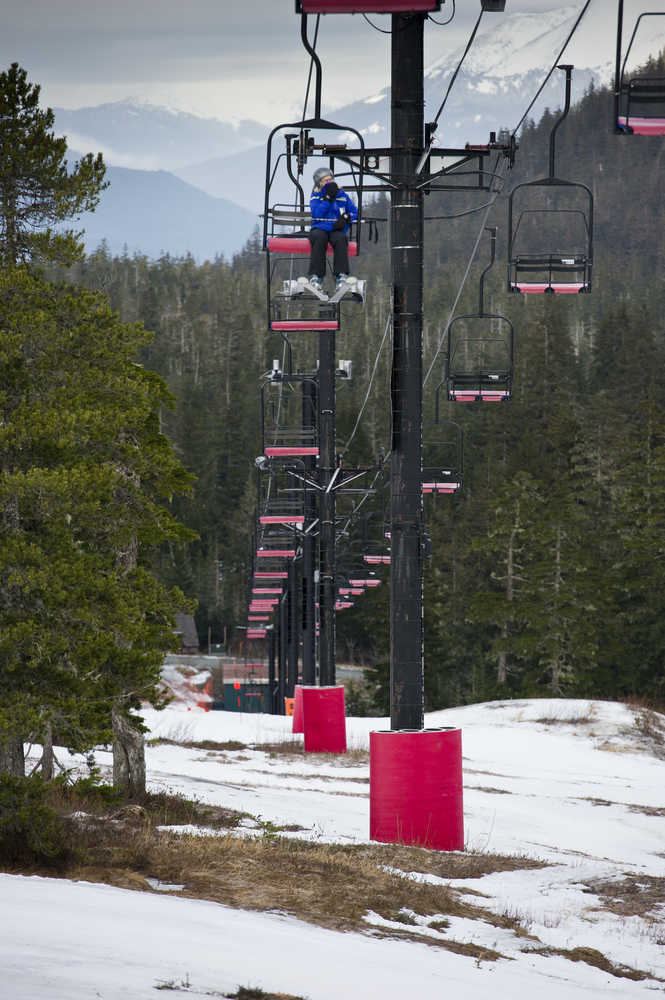For the second consecutive year, Eaglecrest Ski Area has canceled its Slush Cup due to lack of snow.
What was once an annual event to celebrate the last day of skiing at Eaglecrest featured costumed skiers and snowboarders as they tried to skim across a 50-foot pool of water. This year’s slush cup was scheduled for April 10, but without enough snow on the ground to build the crucial slush pool, Eaglecrest officials have decided to cancel the popular event.
“We don’t have enough snow to make a pit close to the size it needs to be for that pool,” said Charlie Herrington, the ski area’s marketing and events organizer. “We would need substantially more snow.”
And that is by no means hyperbole, because right now there is “about a centimeter” of snow on the ground where the Slush Cup usually takes place, Herrington said, making the decision to cancel the event a “no brainer.”
The Slush Cup is not the only casualty of this warm winter. Eaglecrest has closed the main mountain indefinitely, and it has canceled several other events, including the Big Mountain Games and the Bill Tugman Obstacle Course. The ski area’s director, Matt Lillard, said that without the main mountain runs Roll Back weekend, which will take place Saturday and Sunday, “probably wouldn’t be as popular as if we still had our main mountain open.”
Lillard said that Eaglecrest will reopen the main mountain provided that the ski area gets more snow. Right now, however, anybody looking to enjoy the $7 lift tickets this weekend will be limited to the Porcupine lift, which is the only lift the ski area is operating.
Despite the closure of the main mountain and the cancelation of Slush Cup, Lillard still has a positive outlook for the remainder of the season.
“We still remain optimistic that we’re going to be able to ski, but realistically we’re not going to have enough snow to build a pond,” he said. “We’d need feet upon feet, and we’re just not seeing that this time in the year.”
Fortunately for the ski area it will take far less snow than that to reopen the main mountain, according to Herrington. There is a 300-foot patch of snowless ground between the lower portion of the mountain and the parking lot. Other than that the mountain is still snow-covered, he said. If Eaglecrest gets enough snow to cover that bald spot, he is hopeful that the ski area will be able to reopen the main mountain.
“We still have all of March,” Lillard said. “We’re just hoping the weather turns and we get some snow.”

